Mourning Cloak Butterfly
Mourning Cloak Butterfly Coloration, Characteristics and Size
The long-lived Mourning Cloak (Nymphalis antiopa) is a beauty in any landscape. It features a maroon-brown color with blue submarginal spots and rich, intricate yellow borders.
Some live as long as 10 months, overwintering in protected areas of bark, logs, or crevices in buildings. Mourning Cloaks become active when temperatures reach about 60 degrees, and thus are often the first butterflies seen in spring.
Its size is typically in the 3.0" - 3.5" range.
Distribution and Habitat
The Mourning Cloak butterfly is normally seen throughout the entire United States and most of Canada.
It is not an abundant species, and is most often seen in forests, along streams, parks and fields.
Nectar and Host Plants Used by the Mourning Cloak
The Mourning Cloak prefers tree sap and rotting fruit over flowers, but will feed on willows or early blooming shrubs. Males defend large territories, perhaps as much as 300 sq. yards, and thus moves often to protect his kingdom.
Host plants include willow, cottonwood, birch, elm, hackberry, and other species of trees.
Adult food sources include sap, fruit, and infrequently nectar.
Mourning Cloak Butterfly Life Cycle Stages and Times
| Stage | Typical Duration |
| Egg stage | 4 to 14 days |
| Caterpillar (larval) stage | 3 to 4 weeks |
| Chrysalis (pupal) stage | 7 to 18 days |
| Adult butterfly stage | 6 to 20 days typical, but some can live for months. Overwinters as an adult |
Photos of Mourning Cloak Butterflies
Mourning Cloak Butterfly
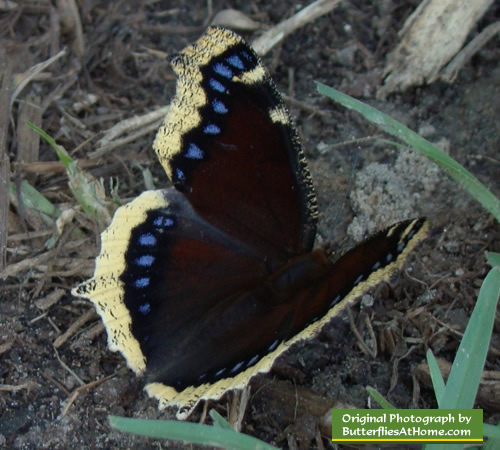
Mourning Cloak Butterfly (ventral view)
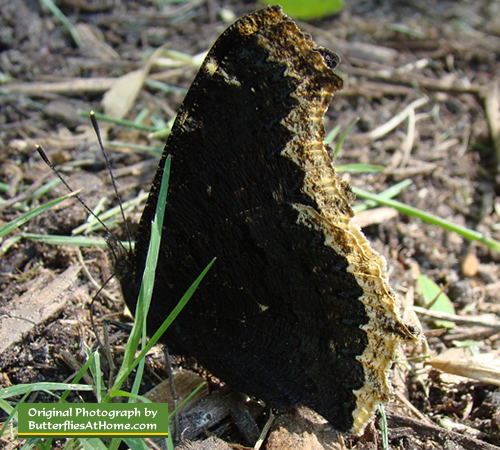
Mourning Cloak Butterfly (dorsal view)
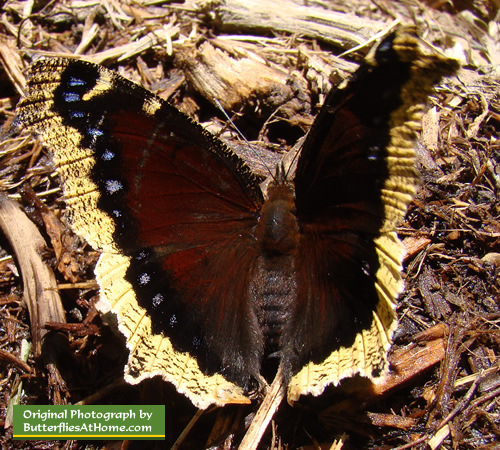
Mourning Cloak Butterfly (dorsal view) |
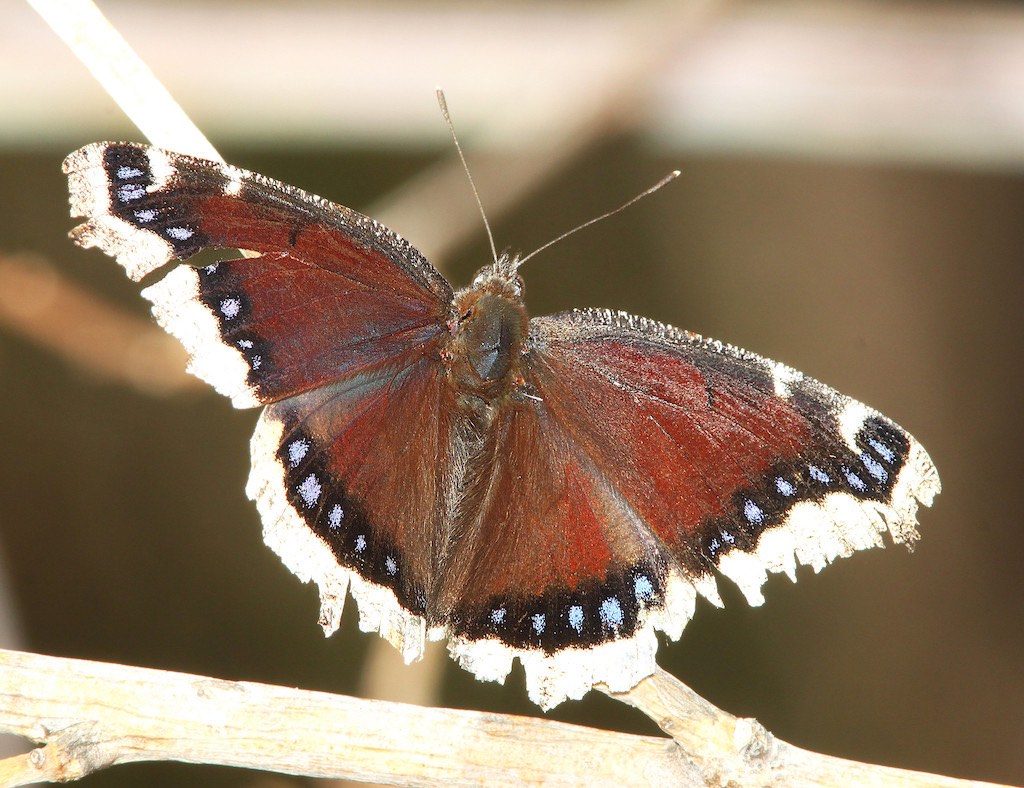 |
Mourning Cloak Butterfly (ventral view) |
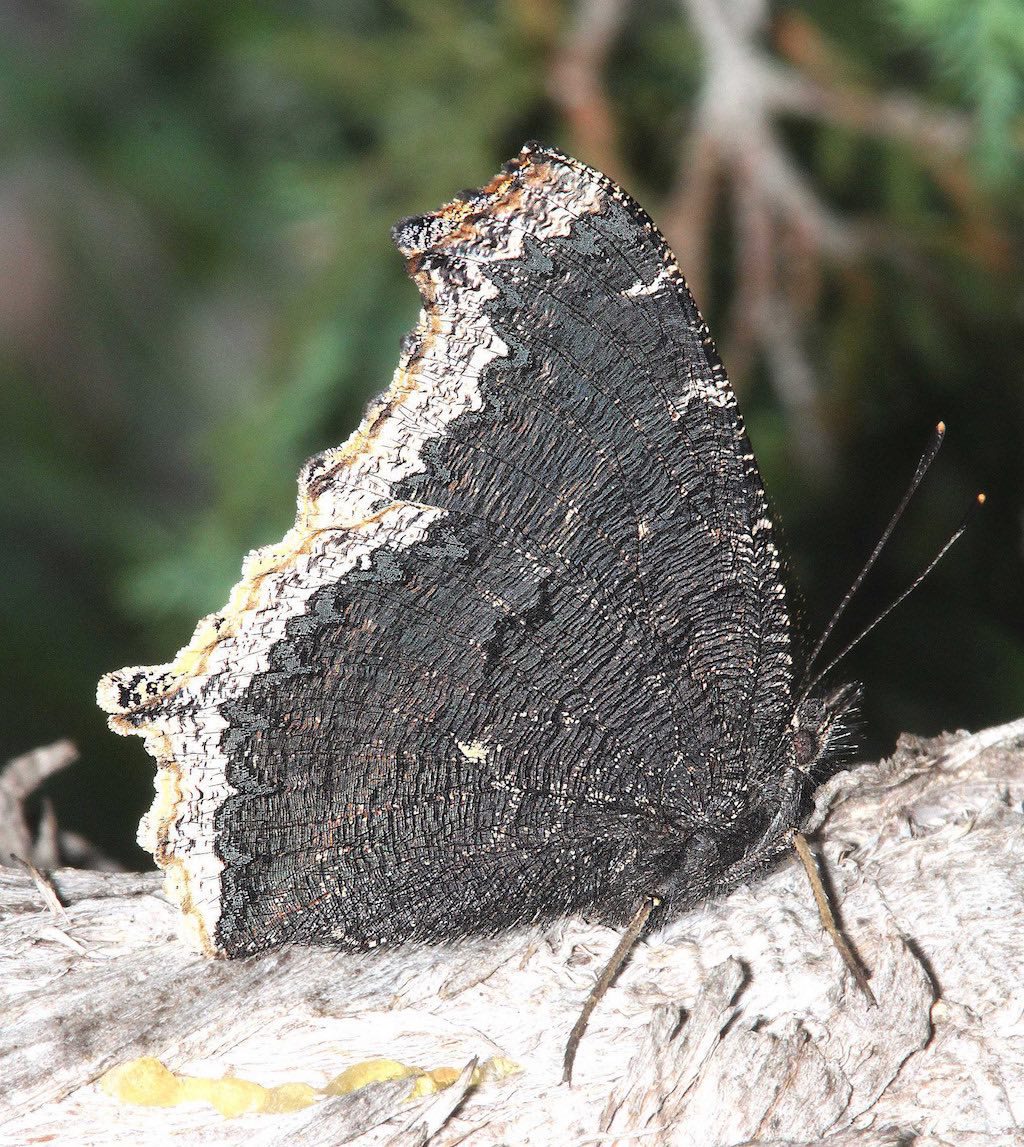 |
Mourning Cloak Butterfly Caterpillar |
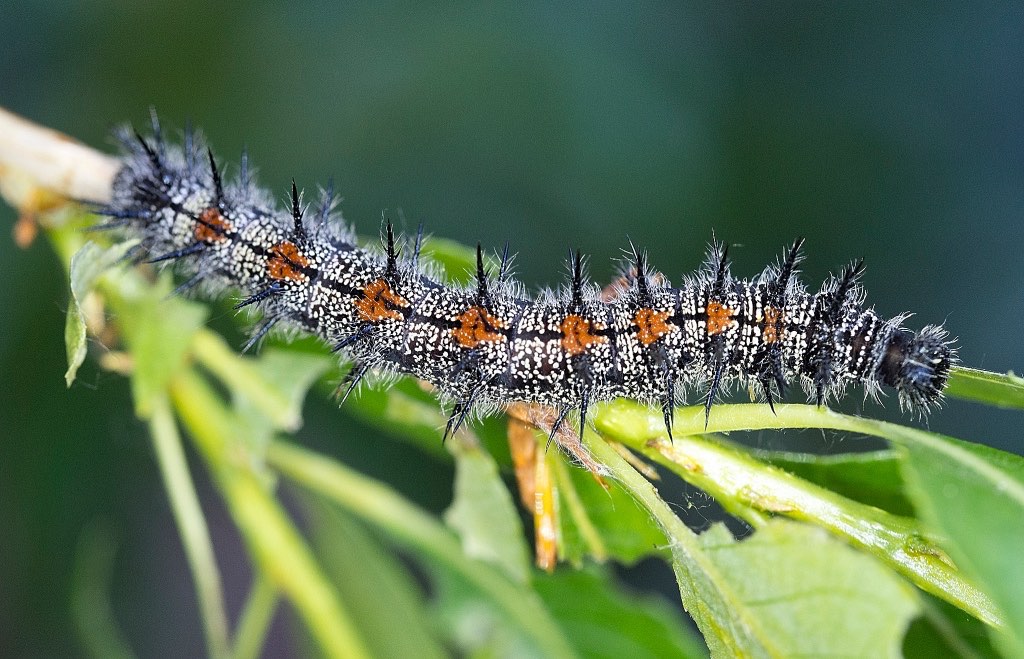 |
Mourning Cloak Butterfly |
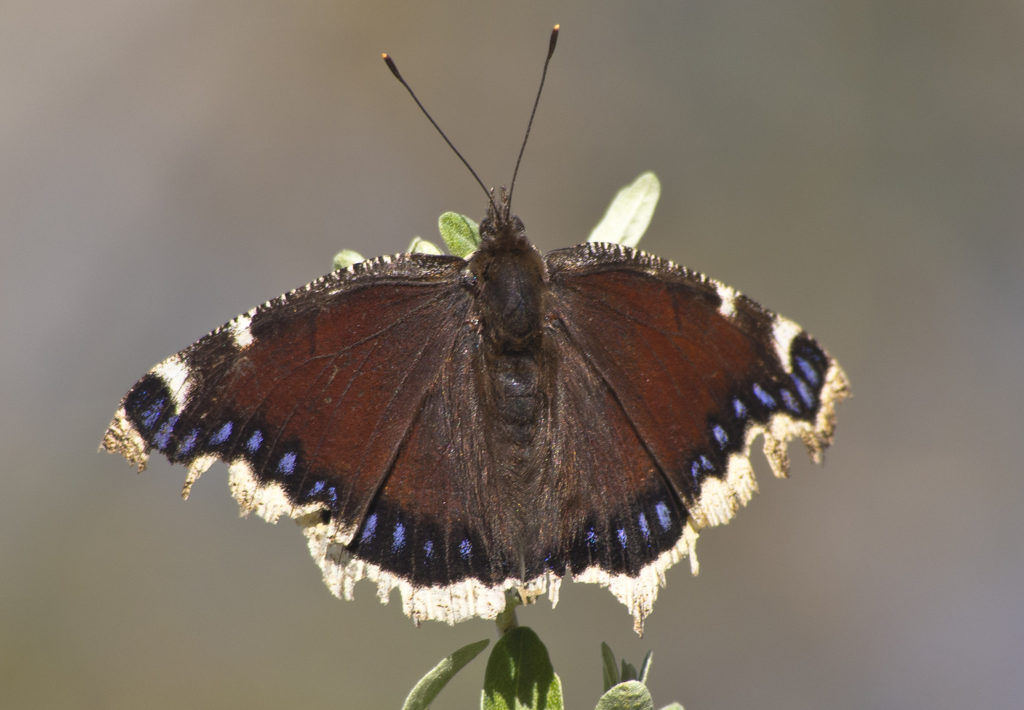 |
Mourning Cloak Butterfly |
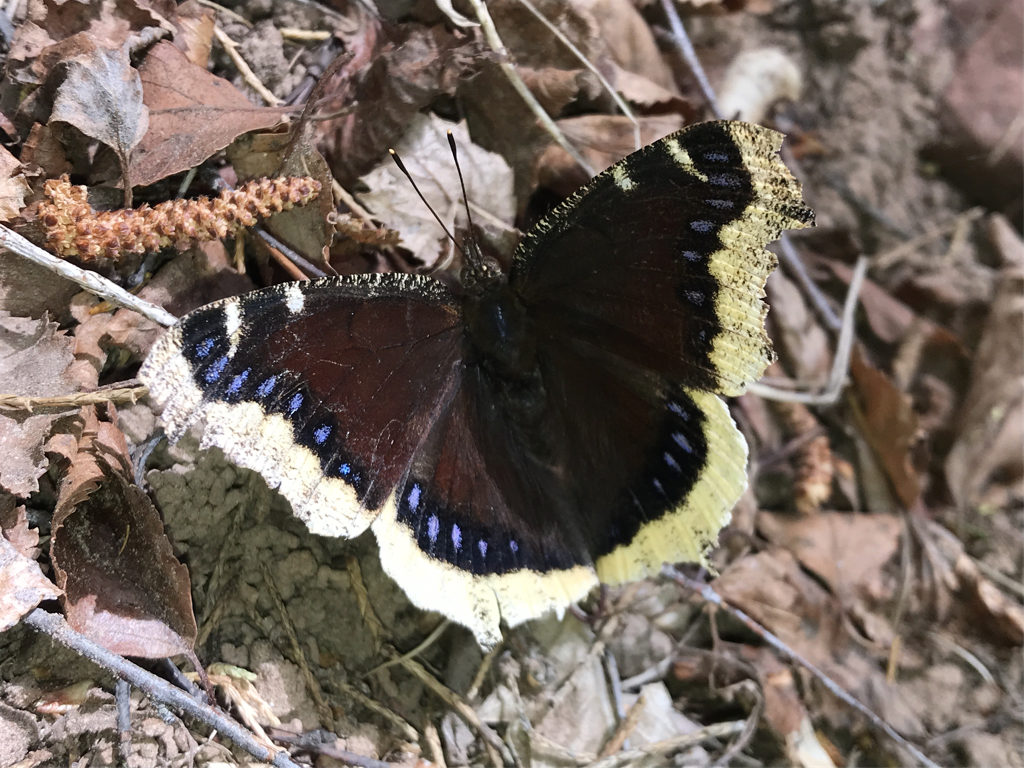 |
